
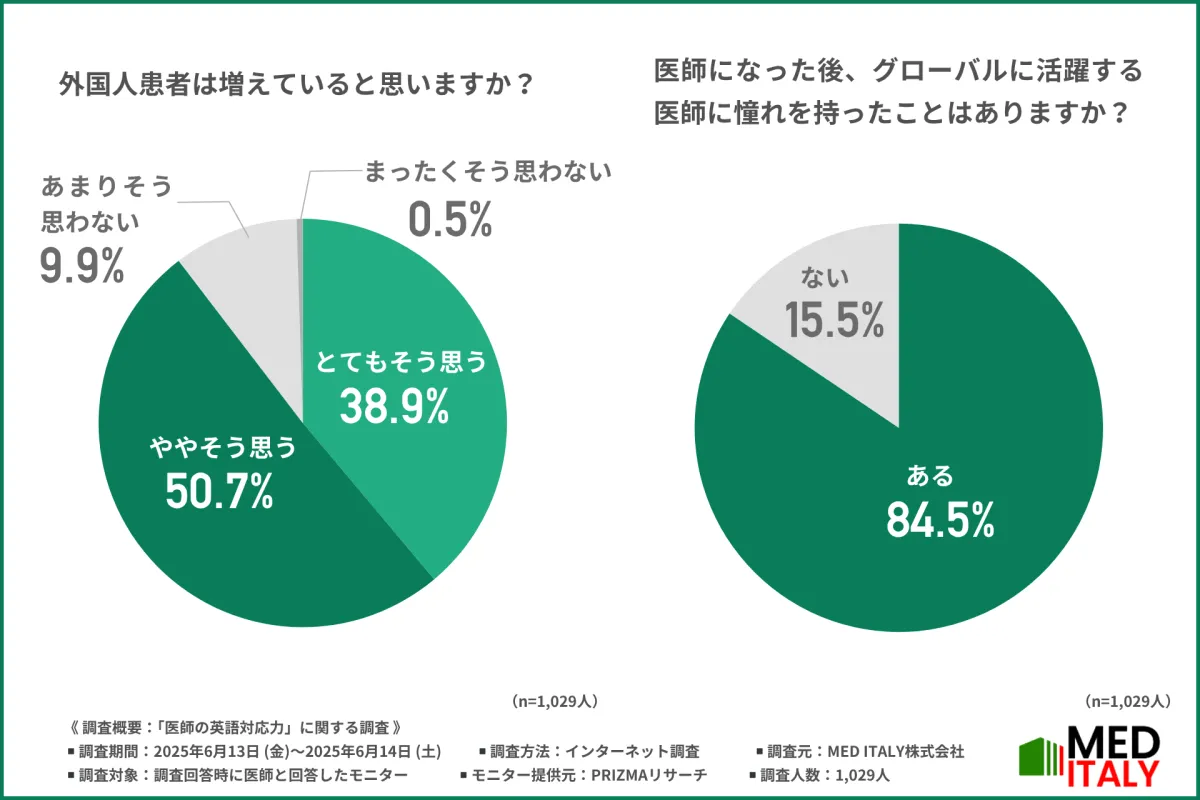
Challenges and Opportunities for Japanese Doctors in English Communication with Foreign Patients
Overview of English Proficiency Challenges Among Japanese Physicians
The growing influx of foreign patients seeking medical attention in Japan has brought to light the pressing need for English communication skills among Japanese doctors. A recently conducted survey by MED ITALY Co., Ltd. highlights that over 90% of physicians are conscious of this need; however, a significant proportion feels their language skills are insufficient. This article explores the findings of the survey, the challenges posed by language barriers in medical practice, and the potential solutions to enhance physicians' capabilities.
The Rising Demand for English Communication
As more foreign visitors and residents arrive in Japan, the ability of healthcare providers to communicate effectively in English becomes increasingly vital. The survey revealed that approximately 90% of physicians acknowledge an increase in the number of foreign patients, prompting a heightened awareness of the importance of language skills in delivering quality healthcare. Unfortunately, Japan's medical education remains predominantly in Japanese, which raises concerns about the growing gap between Japan and other developed nations that have embraced English-based medical education amidst globalization.
Physicians' Perspectives on Language Skills
The survey probed physicians about their experiences treating foreign patients. It found that 42.3% encountered difficulties in adequately explaining diagnoses and treatment, while 39.4% struggled to accurately understand patients' symptoms or medical history. Furthermore, 32.7% faced challenges communicating how to take prescribed medications. This inadequacy can compromise the quality of care and patient safety, emphasizing the critical need for effective English communication skills.
The awareness of these challenges is not lost on physicians, as over 80% expressed a desire to develop their skills for a global medical career. Participation in international conferences and exposure to diverse medical practices are increasingly seen as vital to their professional development.
The Academic Implications of Language Barriers
When asked about their experiences at international conferences, more than 90% of physicians felt that stronger English skills would have enabled them to participate more meaningfully. The ability to engage in discussions, pose questions, and communicate findings is essential not only for individual success but also for advancing Japanese medicine on a global stage. Unfortunately, fluency in English has become a critical barrier for many, with physicians citing difficulties in spontaneous questioning during presentations, leading to a lack of robust interactions with international peers.
Current State of English Support in Medical Institutions
The survey also sought to understand the actual availability of English-speaking staff in hospitals and clinics across Japan. To the surprise of many, only 15.6% of respondents reported that over half of their colleagues had the ability to communicate effectively in English. This situation reveals a concerning gap, as many institutions lack adequate resources for English-speaking staff. With English-speaking personnel largely concentrated among a few, workload inequities arise, making the system vulnerable to inefficiencies that can impact patient care.
Physicians' Confidence in Their Language Skills
When reflecting on their confidence in English medical communication, over 60% of physicians expressed varying levels of self-assurance. However, only 20.9% indicated they felt 'very confident,' signaling an area for improvement in practical language training. The complexity of medical terminology and cultural nuances presents considerable challenges that necessitate dedicated efforts to enhance English proficiency in clinical contexts.
The Role of International Experience in Career Development
Despite the language challenges, over 80% of physicians recognize the importance of English skills for their career advancement. They highlighted significant benefits, including the ability to communicate effectively with foreign patients, access to contemporary medical literature in English, and opportunities to present at international forums.
A notable trend emerged in response to the question of studying abroad for medical purposes; nearly 90% of physicians expressed a positive attitude towards the idea. This suggests that they view overseas education not only as an opportunity to deepen medical knowledge but also as a chance to hone their English communication in practical settings.
Conclusion
The survey results underscore a critical moment for the Japanese medical community as they confront the dual challenges of a rising foreign patient population and insufficient English communication skills. The overwhelming majority of physicians recognize the urgency of improving their language capabilities to ensure quality care. As global interconnectivity continues to evolve, Japanese doctors must embrace opportunities for international study, which can facilitate necessary language improvements and prepare them to deliver safe and effective medical care in a multicultural environment.
About MED ITALY Co., Ltd.:
Specializing in educational support for aspiring medical students, MED ITALY offers unique pathways to studying medicine in Italy, bridging the gap between language proficiency and medical expertise. Find out more about their programs at MED ITALY’s website.
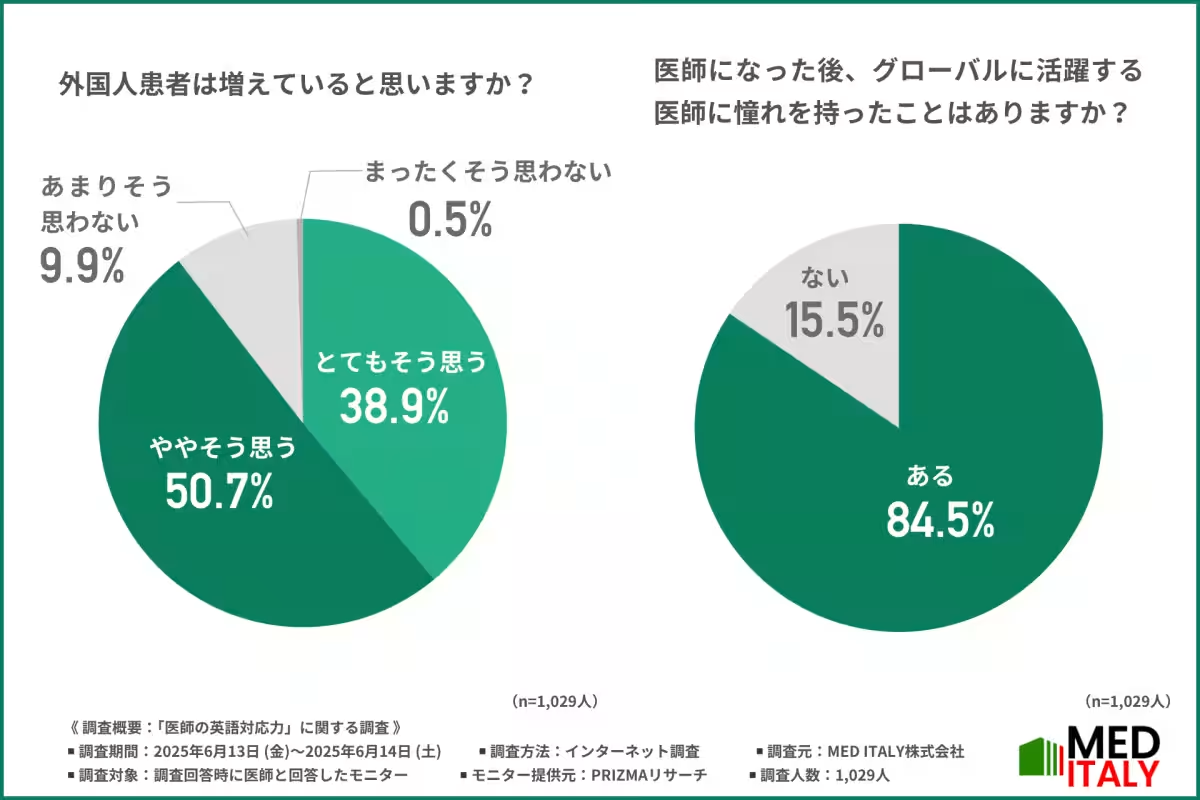
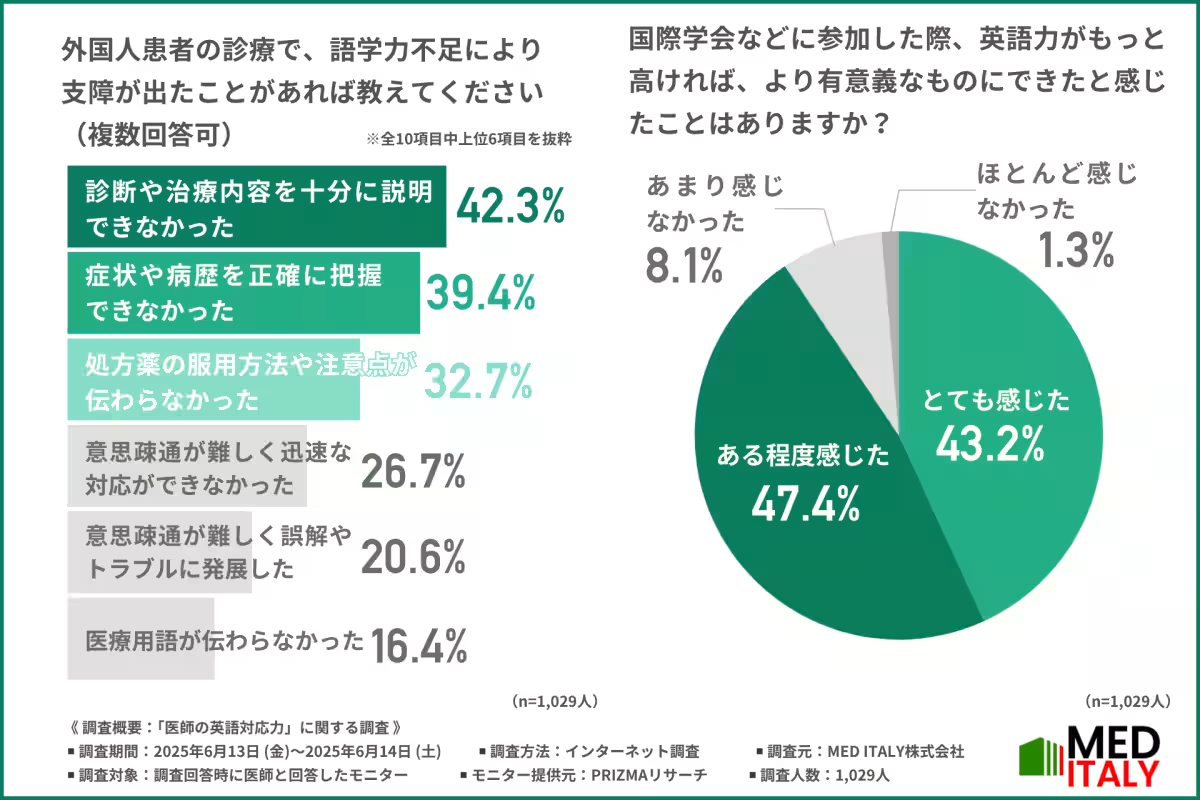
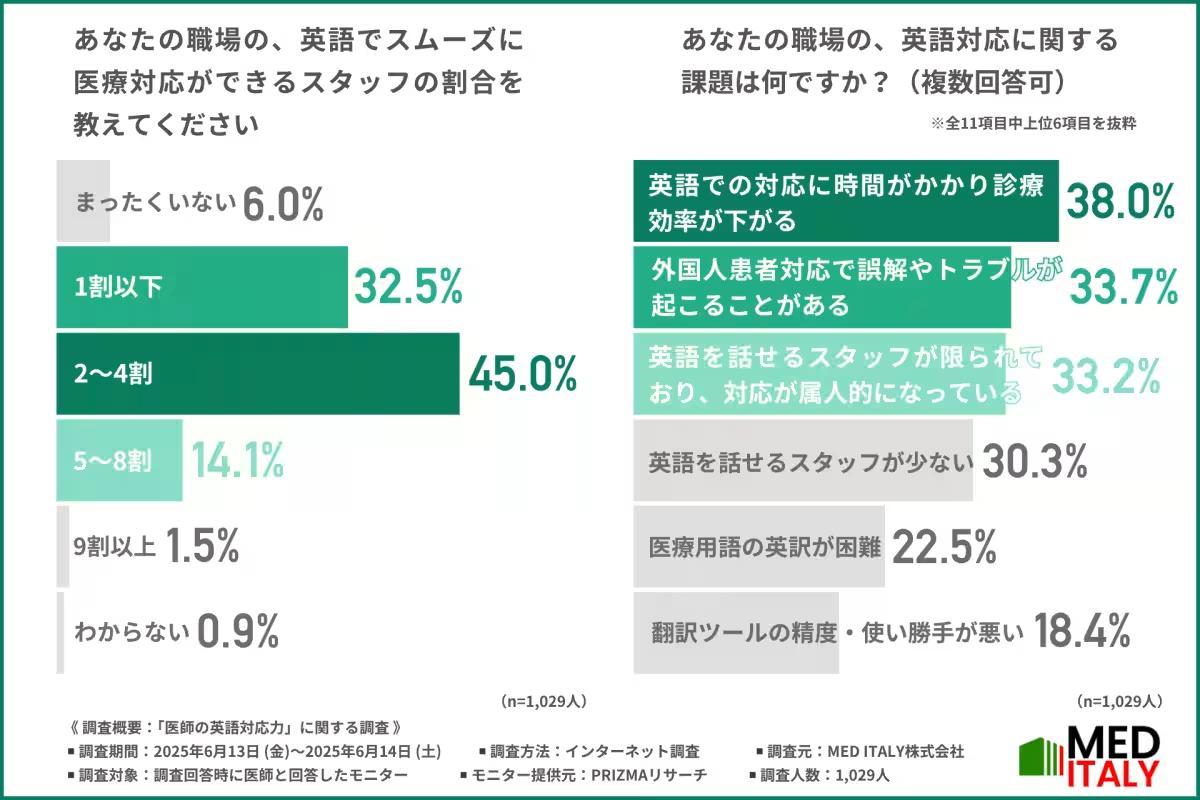

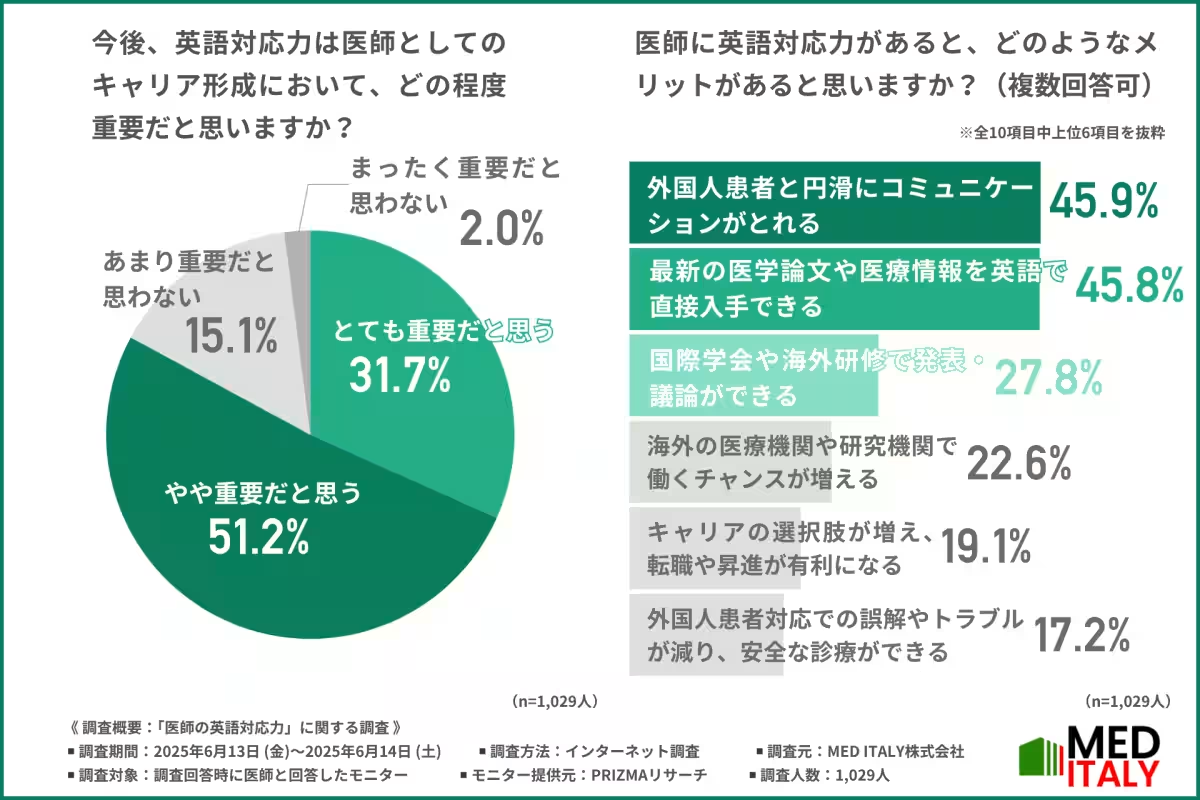
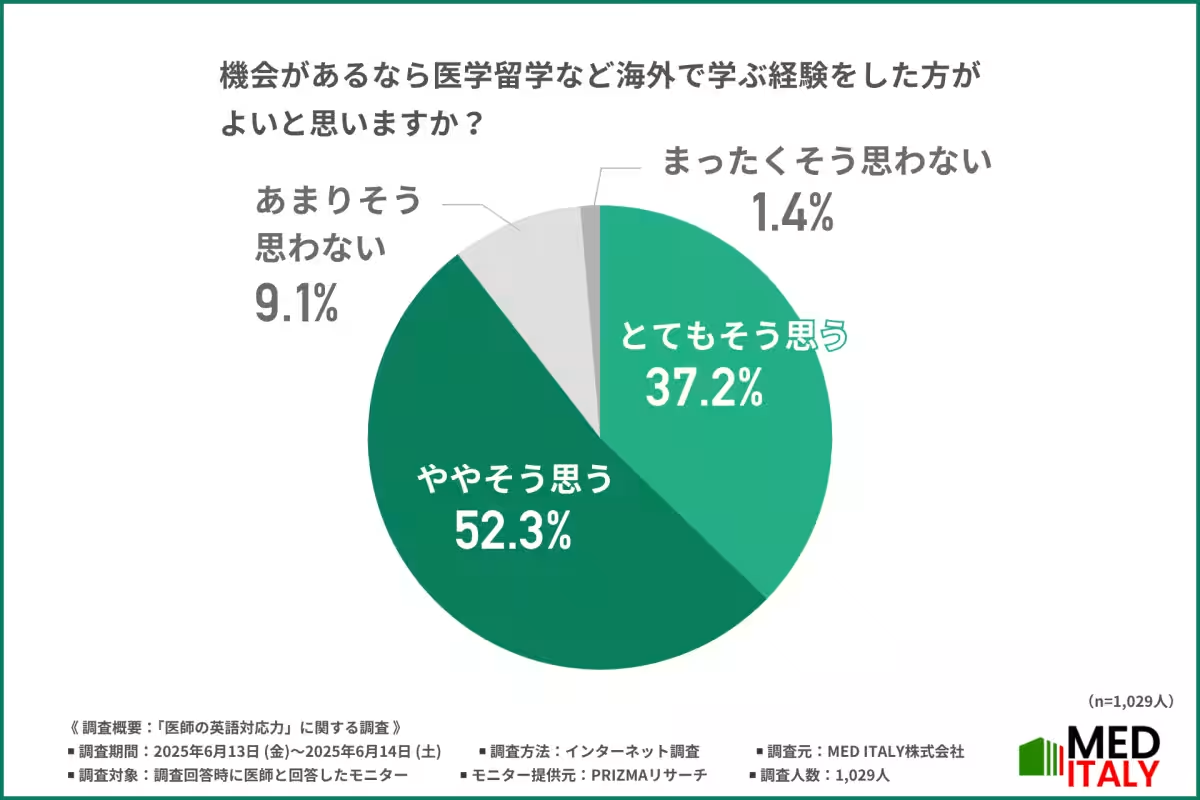
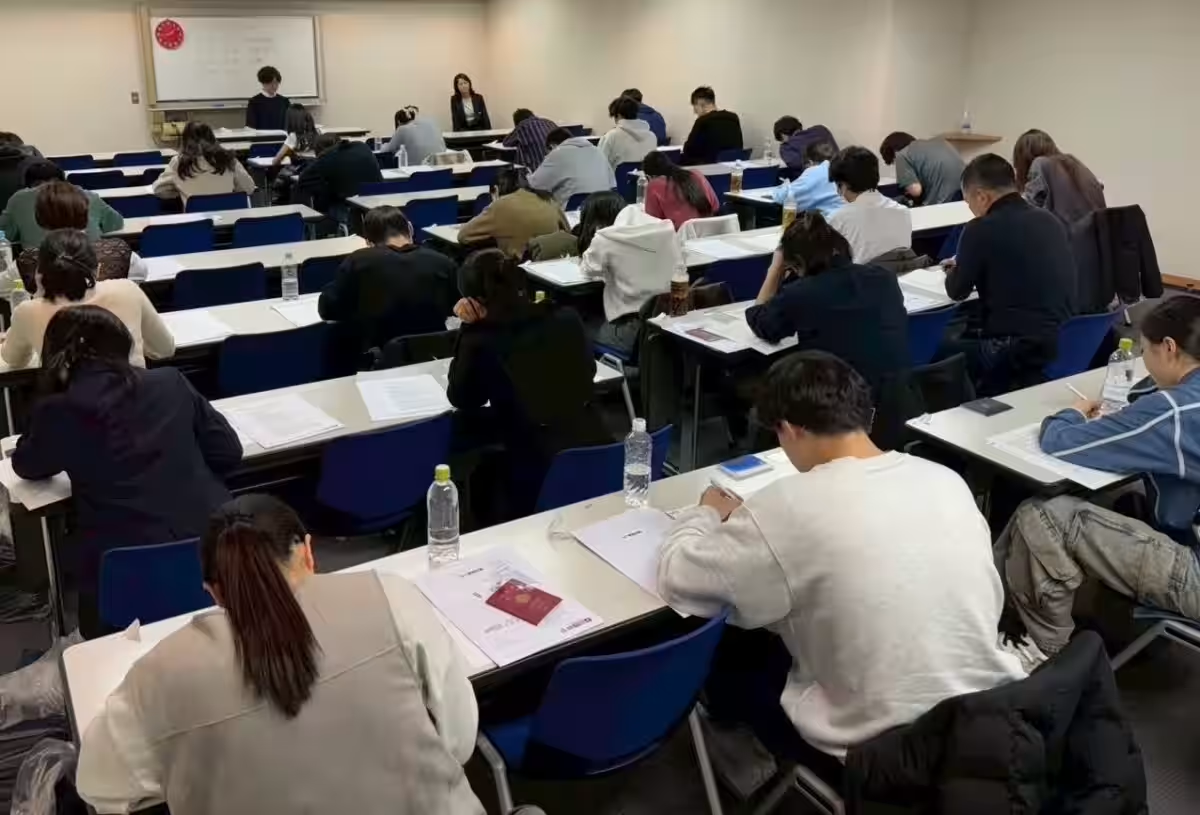

Topics Health)










【About Using Articles】
You can freely use the title and article content by linking to the page where the article is posted.
※ Images cannot be used.
【About Links】
Links are free to use.